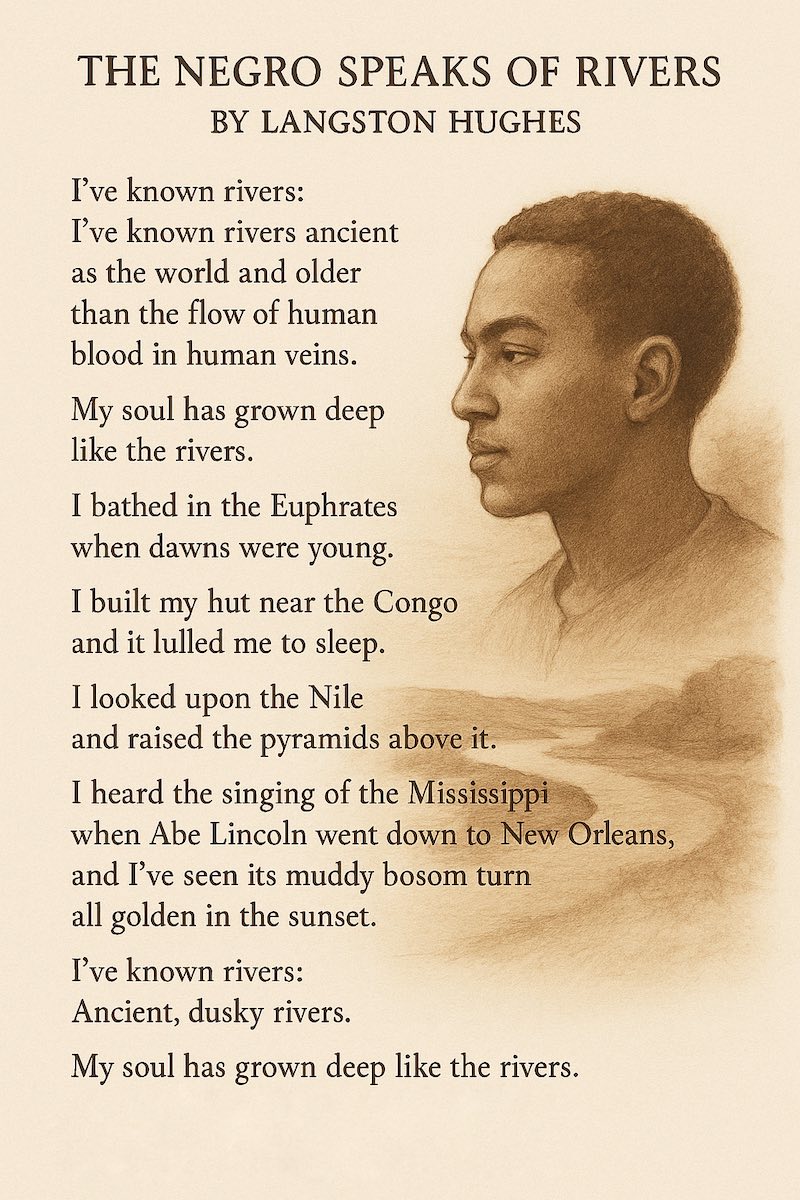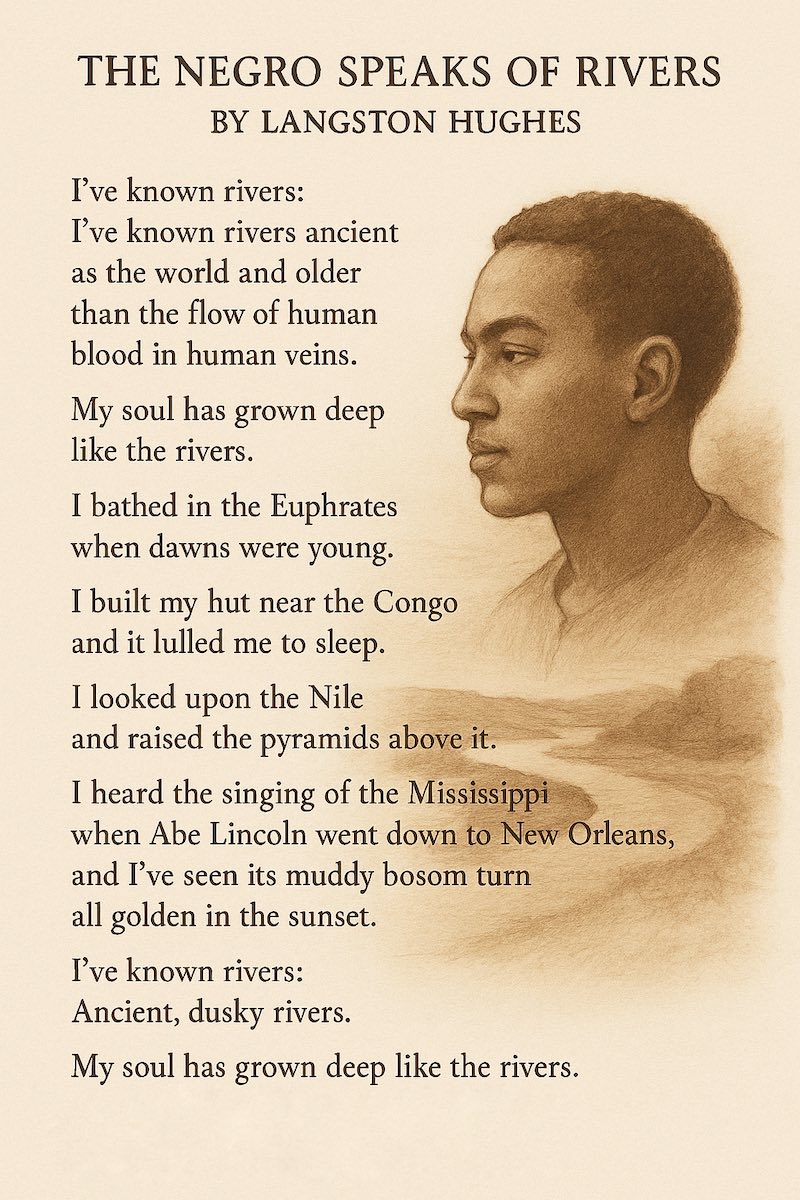Ancient, Dusky Rivers: The Enduring Soul in Langston Hughes' "The Negro Speaks of Rivers"
Langston Hughes’ “The Negro Speaks of Rivers,” first published in The Crisis in June 1921, is one of the most famous and foundational poems of the Harlem Renaissance. Hughes wrote the brief poem in 1920 while crossing the Mississippi River, and it established the focus of much of his career: connecting the contemporary African American experience to a vast, ancient heritage. It is a profound meditation on history and identity, using the metaphor of the world's great waterways to suggest the depth, endurance, and continuity of the collective Black soul.
The Poem
I’ve known rivers ancient as the world and older than the flow of
human blood in human veins.
down to New Orleans, and I’ve seen its muddy bosom turn all
Ancient, dusky rivers.
The Insight: The Continuity of the Black Soul and History
The central "insight" of the poem is the speaker's assumption of an ancient, collective identity. The use of the first person "I" does not refer only to the poet, but to the collective African American "soul," which has experienced the sweep of human history across multiple continents. By linking his identity to the Euphrates (the cradle of civilization), the Congo (the heart of Africa), the Nile (site of the pyramids), and the Mississippi (associated with American history and slavery), the speaker asserts that the Black experience is as deep and as old as human civilization itself.
Hughes’ use of free verse allows the poem to flow with the unhurried, natural rhythm of a river itself, moving and pausing without the strictures of a fixed meter. The key rhetorical device is metaphor, where the river represents history, memory, and the "soul" of the community. The speaker's soul has "grown deep like the rivers," suggesting that the long, often painful, and globally distributed history of African and African American people has resulted in a profound, enduring spiritual wisdom.
The listing of the rivers creates a geographic and historical journey: it begins with the mythological dawn of time ("when dawns were young") by the Euphrates and Congo, travels to the grand civilizations of the Nile, and finally lands on the American Mississippi, where the "muddy bosom turn[s] all golden in the sunset." This final image transforms the river's turbulent, dark history into something beautiful and hopeful—a redemption and an affirmation of value ("all golden"). The poem closes with a powerful repetition that grounds the individual's identity in this monumental, collective history: "My soul has grown deep like the rivers."

